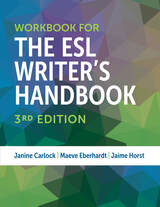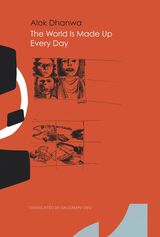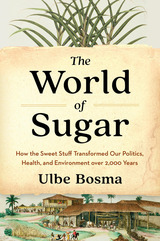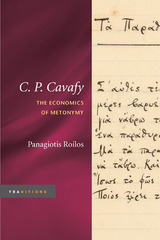
Konstantinos P. Kavafis--known to the English-reading world as C. P. Cavafy--has been internationally recognized as an important poet and attracted the admiration of eminent literary figures such as E. M. Forster, F. T. Marinetti, W. H. Auden, George Seferis, and James Merrill. Cavafy's idiosyncratic poetry remains one of the most influential and perplexing voices of European modernism.
Focusing on Cavafy's intriguing work, this book navigates new territories in critical theory and offers an interdisciplinary study of the construction of (homo)erotic desire in poetry in terms of metonymic discourse and anti-economic libidinal modalities. Panagiotis Roilos shows that problematizations of art production, market economy, and trafficability of erôs in diverse late-nineteenth and early twentieth-century European sociocultural and political contexts were re-articulated in Cavafy's poetry in new subversive ways that promoted an "unorthodox" discursive and libidinal anti-economy of jouissance.

This volume of 154 poems by Constantine Cavafy is the entire body of work by the artist widely considered a master of modern Greek poetry. Published only privately during his lifetime, Cavafy's poems achieved international acclaim when writers such as E. M. Forster, Laurence Durrell, T. S. Eliot, and W. H. Auden brought his work to a worldwide audience.
Cavafy was a poet of Alexandria, the city of his birth and his home throughout his adult life. At the confluence of many histories—Greek, Egyptian, Byzantine, modern European—and many religions, the city provided endless inspiration for his brief, intimate portraits of individuals, historic and contemporary, real and imagined. Homoerotic desire, artistic longing, and a nostalgic fatalism suffuse the subjects he examined and laid bare, without metaphor or simile, in free iambic verse.
Published here in the original Greek, with a new English translation by the noted poet Stratis Haviaris on each facing page, and with a foreword by Seamus Heaney, The Canon is Cavafy, familiar and fresh, seen through new eyes, yet instantly recognized: "the Greek gentleman in a straw hat," as Forster called him, "standing absolutely motionless at a slight angle to the universe."

This book explores diverse but complementary interdisciplinary approaches to the poetics, intertexts, and influence of the work of C. P. Cavafy (Konstantinos Kavafis), one of the most important twentieth-century European poets. Written by leading international scholars in a number of disciplines (critical theory, gender studies, comparative literature, English studies, Greek studies, anthropology, classics), the essays of this volume situate Cavafy’s poetry within the broader contexts of modernism and aestheticism and investigate its complex and innovative responses to European literary traditions (from Greek antiquity to modernity) as well as its multifaceted impact on major figures of world literature—from North America to South Africa.
Contributors include Eve Sedgwick, Helen Vendler, Dimitrios Yatromanolakis, Richard Dellamora, Mark Doty, James Faubion, Diana Haas, John Chioles, Albert Henrichs, Kathleen Coleman, Michael Paschalis, Peter Jeffreys, and Panagiotis Roilos.
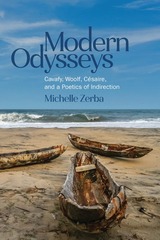

C. P. Cavafy (Konstantinos Petrou Kavafis) is one of the most important Greek poets since antiquity. He was born, lived, and died in Alexandria (1863–1933), with brief periods spent in England, Constantinople, and Athens. Cavafy set in motion the most powerful modernism in early twentieth-century European poetry, exhibiting simple truths about eroticism, history, and philosophy—an inscrutable triumvirate that informs the Greek language and culture in all their diachrony. The Cavafy Canon plays with the complexities of ironic Socratic thought, suffused with the honesty of unadorned iambic verse.
Based on a fifty-year continuous scholarly and literary interaction with Cavafy’s poetry and its Greek and western European intertexts, John Chioles has produced an authoritative and exceptionally nuanced translation of the complex linguistic registers of Cavafy’s Canon into English.
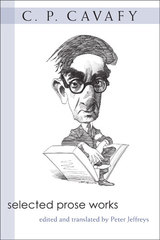
"A timely and significant supplement to C. P. Cavafy's poetic canon, the Selected Prose Works, eloquently translated and meticulously annotated by Peter Jeffreys, allows readers yet another creative engagement with the greatest Greek writer since antiquity. Marked by a wide and intriguing range of interests, these writings offer a rich trove for general readers and scholars alike, who from now on will find it difficult to discuss Cavafy's poetry without reference to his prose."
---Vassilis Lambropoulos, C. P. Cavafy Professor of Modern Greek, University of Michigan
"Peter Jeffreys gives us a rare gift---access to Constantine Cavafy's prose work. Through his intelligent translation, these texts, which range from literary criticism to personal notes, from essays on the Greek language to the Parthenon marbles, offer unexpected entry into the mind of one of the twentieth century's greatest literary figures. They suggest new ways to think about not only Cavafy's remarkable poetry but also the man himself. An indispensable companion for all who love Cavafy's work."
---Gregory Jusdanis, The Ohio State University
"Once you've felt his influence, you won't need telling that Cavafy is unique in his distinctive voice, his quiet humor, and his unassertive culture."
---Frank Kermode, Formerly Lord Northcliffe Professor of Modern English Literature at University College, London, and King Edward VII Professor of English Literature, University of Cambridge
Constantine Cavafy (1863–1933) is arguably the most important modern poet of Greece and Greek culture. Long a resident of Egypt and then Constantinople, Cavafy in his poems and prose works tended to focus on Greco-Roman antiquity, on Greece's national identity, and on personal and mythological images and themes including his ethnicity and sexual identity. He wrote some 150 poems, plus a few works in collaboration with his brother John.
His poetical works have been much translated and discussed, but until now, very little consideration has been given to his prose works, in part because many remained untranslated from the original Greek. This book collects Cavafy's more interesting prose pieces and translates those that originally appeared in Greek.
Of the forty pieces included, only thirteen have previously appeared in print, and of those thirteen only a few were in English. The pieces include essays, "prose poems," short stories, self-assessments, and considerations of other poets, including John Keats. This significant new collection offers a different perspective on the well-known Cavafy.
Peter Jeffreys, Assistant Professor of English at Suffolk University in Boston, received a Doctorate in English Literature from the University of Toronto. He is the author of Eastern Questions: Hellenism and Orientalism in the Writings of E.M. Forster and C.P. Cavafy and the editor of The Forster-Cavafy Letters: Friends at a Slight Angle. He is currently working on a bio-critical study of C. P. Cavafy and the decadent tradition.
Cover image copyright © David Levine
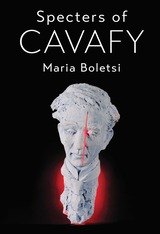
Specters of Cavafy broaches these questions by proposing spectral poetics as a novel approach to Cavafy’s work. Drawing from theorizations of specters and haunting, it develops spectrality as a lens for revisiting Cavafy’s poetry and prose, fiction and nonfiction, as well as his poetry’s bearing on our present. By examining Cavafy’s spectral poetics, the book’s first part shows how conjurations work in his writings, and how the spectral permeates the entanglement of modernity and haunting, and of irony and affect. The second part traces the afterlives of specific poems in the Western imagination since the 1990s, in Egypt’s history of debt and colonization, and in Greece during the country’s recent debt crisis. Beyond its original contribution to Cavafy studies, the book proposes tools and modes of reading that are broadly applicable in literary and cultural studies.
READERS
Browse our collection.
PUBLISHERS
See BiblioVault's publisher services.
STUDENT SERVICES
Files for college accessibility offices.
UChicago Accessibility Resources
home | accessibility | search | about | contact us
BiblioVault ® 2001 - 2025
The University of Chicago Press



